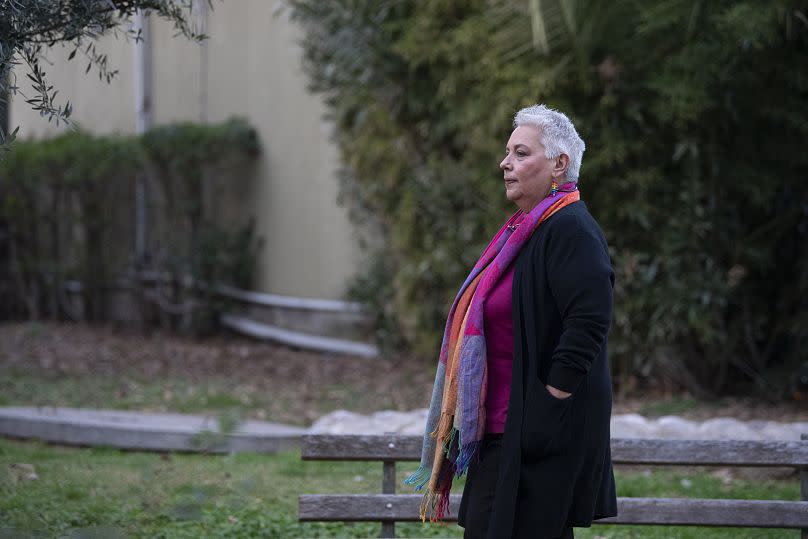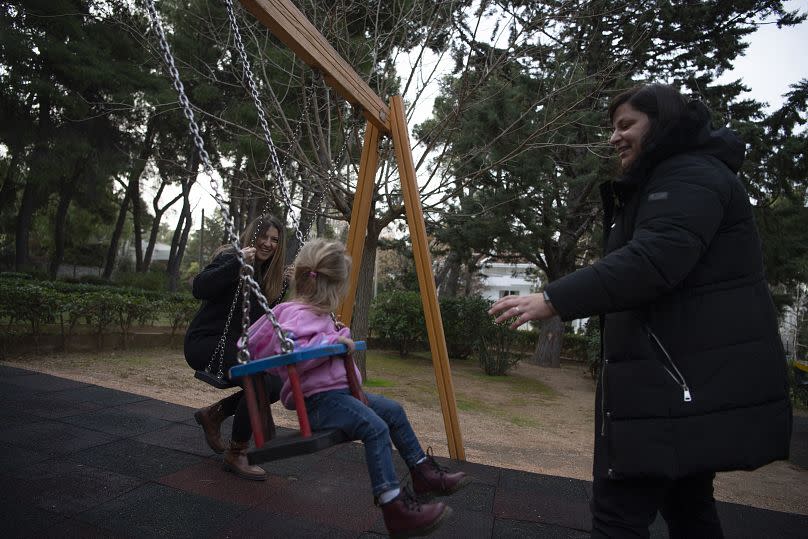Same sex-marriage divides Greek public as legal recognition draws near

Years before starting a family of her own, Stella Belia, head of the Greek same-sex family support group Rainbow Families, was already waging a tireless campaign for legal recognition. This week, just a few months shy of her twin boys’ 17th birthday, her fight may finally be over.
Greek lawmakers are expected to legalise same-sex marriage in a parliament vote on Thursday. Approval would make Greece the first Orthodox Christian country to take that step, clearing multiple legal hurdles for gay couples who already have or want to have children.
“I’ve been fighting for this ever since I figured out who I was,” says Belia, a 57-year-old drama teacher with a gruff voice and an easy laugh.
“And it’s a great relief to say we’ve finally made it. But it is tiresome, very tiresome to fight for something that’s an obvious right – to suffer for something that other people are just handed – and have to fight so hard to get it.”

While Belia and her female partner split when her sons were aged 11, she still considers her ex to be the boys’ other mother.
Although civil partnerships were extended to gay couples in Greece nearly a decade ago, only the biological parents of children in those relationships are currently recognised as legal guardians.
The issue of children’s rights, including the publicissed plight of cancer survivors in a same-sex relationship, helped nudge public opinion toward narrowly favouring the bill.
For Chrysa Gkotsopoulou and Elena Kotsifi, the new law would allow them to feel seen in their own country.
In 2015, they left for the UK for work and remained after seeing the prospects the country offered for the lesbian couple. Today, they have a daughter.
“We quickly realised that England offered us prospects as a couple that we had never previously imagined.” Kotsifi, said. “We could be ourselves.”

They flew to Athens last weekend to celebrate the bill’s expected approval and said that for the first time in nearly a decade, they now view returning home as a possibility.
They hope to join the activist Belia and others Thursday night in the public gallery in parliament and celebrations set to follow.
“If there’s room for us (in parliament), we’d like to go,” Gkotsopoulou said. “We feel joy, joy and pride that Greece is moving to the right side of history.”
But the trend towards acceptance has also triggered a strong reaction from the country’s powerful Orthodox Church.
Opposition from the pulpit
Representing Greece’s dominant faith, the church argues the marriage bill would confuse parental roles and weaken the traditional family. It has petitioned lawmakers to reconsider, voicing its misgivings in a public appeal that was read out at Sunday services.
Several prominent bishops have taken a tougher line, warning that they will refuse to baptise the children of gay couples. They have allied with far-right political parties and traditionalist groups to stage public demonstrations.
On Sunday, over 1,500 protestors rallied in front of Parliament to oppose the bill.

The religious groups who organised Sunday's demonstration described the bill as a threat to the traditional family. Many of the demonstrators chanted “Hands off our children.”
Protester Chara Giannakantonaki said she felt compelled to attend the rally.
“Every minority already has its rights guaranteed. There is no issue. They don’t need (same-sex) marriage. They just want to desecrate whatever has remained sacred in Greece: our church, our families and our children,” she said. “But children are a red line and we will never accept this.”
“Unfortunately, the woke agenda has also reached Greece and that agenda includes the marriage of homosexuals,” Dimitris Natsios, leader of the far-right and strongly religious Niki party told the Associated Press.
A bill with rare cross-party approval
Nonetheless, Greek lawmakers are expected to legalise same-sex marriage in a parliament vote on Thursday in what promises to be a rare display of cross-party collaboration.
The bill was sponsored by Prime Minister Kyriakos Mitsotakis’ centre-right government and received the crucial backing of the opposition party as well.
Syriza leader Stefanos Kasselakis said he would instruct his lawmakers to vote for the proposal, although he argued that it didn’t go far enough on parenthood rights.
In order for the law to pass, Mitsotakis will need a minimum of 151 votes, out of the 300-seat parliament. While Syriza’s support would practically ensure the bill’s approval, the Greek government is facing dissent among conservatives over the proposal. bill. Support from the centrist and left-wing opposition will be crucial.


